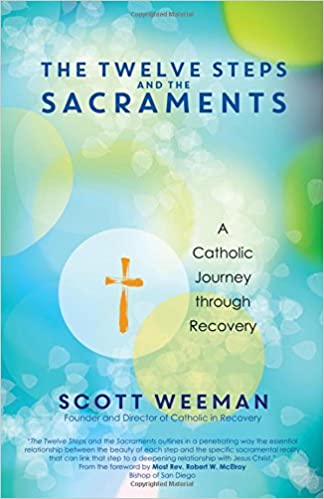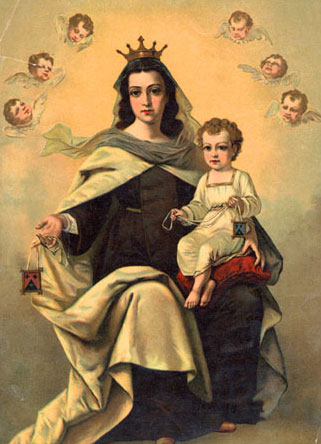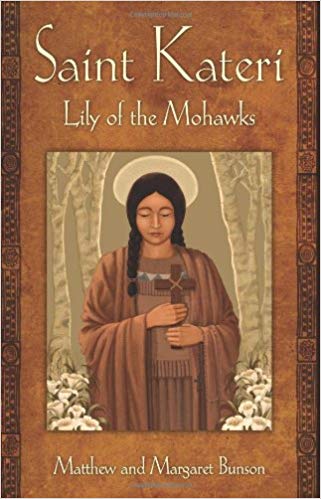No account is given of how Magdalen was tormented by the demons nor of how she found her way to the Lord. No mention is made of whether she came to the Lord through the mediation of others or whether he simply addressed her directly because from all eternity he had determined to do so. Nor are we told how grateful she was as a result and how liberated she felt; there is no account of how the miracle happened nor whether the demons concerned were those that, according to the Lord’s word, can only be driven out by prayer and fasting. There is nothing about all this. Scripture only speaks of service as a result of liberation. And Magdalen remains in this service, although her being with the Lord was bound to mean that she was never to forget the past: she was and is marked by her erstwhile demonic possession. But that is of no concern to her. For her there is only one constant factor: she follows the Lord because he has set her free. Her life is so perfectly instrumental that we are simply presented with her current existence, not with its background nor its development.
The others who are referred to together with Mary have an easier time, in a way. Although two of them are named, their past is not exposed. All we know of the rest is that they were among those who served the Lord out of their means; their names are not revealed. Magdalen is the only one to be exposed. It was not her wish; she was singled out by grace. The stain of her past and the grace of her liberation are ineradicably associated with her name. The distance between them gives us a standard, a hallmark—for in Scripture nothing is mentioned in vain. She was possessed by devils, and now she is one of the Lord’s most intimate associates. Her past history must be of service in reaching her destination: her demonic possession provides the point of departure for the subsequent manifestation of grace. The distance between these poles is a precise one: the intention here is that grace shall be manifested in such a way that its point of departure is not lost sight of. But the characteristics of this distance can be different: for one person the eternally significant factor is that he was baptized; for another, like Saul, for instance, what is fundamental is that the Lord converted him. What is decisive in the case of Magdalen is that she, formerly the victim of possession, is now privileged to be close to the pure God-man and to minister to him whose Holy Spirit has shown his sovereign power over her impure spirits.
In Saul’s conversion we can trace all the various stages: his being blinded by the vision of the Lord, his prayer by night, the sending of Ananias and so forth. We see none of this in the case of Magdalen. Much remains inscrutable, hidden in the Lord by whom she is being carried. No doubt faith grows within her; she is baptized and then takes up her exhausting itinerant life with the Lord. But all this is hidden from our gaze because the Lord has taken over the entire responsibility for it. It is enough for us to know that she has been set free; the rest remains an unspoken mystery between her and the Lord. No doubt her contemporaries knew a little more about her, but what they knew died with them, and it is the Lord who determines what shall be known about her in the Church. This example shows us that even in cases where more is known, where we think we have a certain insight into the soul of a saint and can enter into his conversion process—perhaps through reading his own account of it—there is always much more that is unsaid, known only to the Lord. Between every person and the Lord there is a mystery, and everyone is entitled to privacy and silence. On the other hand it is always up to the Lord to determine and alter the boundaries. According to our way of seeing things the Lord often seems all too discreet in certain cases and almost indiscreet in others. But whether or not we are permitted a glimpse of the former grievous sinfulness of a converted person, the decision rests with the Lord. In the case of Magdalen the Lord has not thought it important for us to know the details of her demonic possession; we only need to know in general that she has emerged from the darkness into the brightness of faith.
Nor is her faith itself described in more detail. It is enough that she is with the Lord, in close discipleship. Later, beneath the Cross, her abiding in the Lord’s presence will reveal its effects. For the moment the spotlight rests briefly on her, as on some figure in a story—and only the author knows how the story is going to proceed. The listeners’ excitement is aroused, but it is immediately subdued by the lack of further information. We do not know how she feels, how she sees her own past, how she prays or how she lives her faith. The curtain is raised on a stage that promises some great forthcoming action: the tension between the seven demons on the one hand and her intimacy with the Lord on the other is so unusual that something highly dramatic seems imminent. But the scene lacks any definition. It remains open in all directions, and in the end we shall see that this openness is the openness of Magdalen’s faith, which is stronger than anything. She will be portrayed as the first person to live her faith beyond the hiatus of death.
For the present, however, she is close to the Lord. She is so exposed to his nearness that he can bring about whatever he wishes within her. She is presented to our contemplative gaze as a saint, but in such a way that, while some features are clearly discernible, God veils others, making them totally inaccessible to us. In Magdalen God teaches us not to ask more, not to wish to know more than he shows us. It is part of her effect on us, in God’s deliberate plan, that she is described thus and not otherwise. It is extraordinarily important for God that he not simply show us everything, but that he open and close, reveal things and veil them again according to his good pleasure. Magdalen has been handed over to the entire Church and to each one of us; we are free to imagine her life with the Lord in whatever way we wish, provided that it fits with what is subsequently reported. It is not a case of making good or bad “guesses” as to how things may have been; it is not a case of guessing at all, but of a kind of shared experience within a given perspective and direction. We can follow the tracks for a short space, and we know the destination; the path in between is up to us.
Part of the life of the saints is turned toward us; the other and larger part is open only to God in solitude and mystery. This area is closed to psychological analysis. Psychology always acts as if the soul can be exhaustively understood, as if there is no hiding place from the objectivity of its laws. But the nearer a soul is to God and the more it shares a common life with God, the more God covers it with his veil, letting us see only what he wishes us to see.
However, God can also use some jejune text of holy Scripture to lead us further in our contemplation. If a person simply reads Scripture in order to get to know the text as such, the meaning of the words and the sequence and context of events, he will be content with the written word. But if a person meditates on the same passages in a spirit of adoration, laying hold of them not only with his reason but with a concretely lived faith, in thorough determination to seek God and find him, God will often initiate him more deeply into the reality behind the words. Contemplation is not merely a psychological process, it is not the soul’s monologue with itself; it is prayer, dialogue with God, in the course of which God’s word acts in sovereign freedom. In contemplation God is always unveiling and veiling himself: there is both day and night. Some of the things he gives are brightly illuminated; others are in darkness because God wishes them to remain wrapped in his mystery. But at this stage it is no longer merely a question of human knowledge and ignorance; it is a question of sharing in a specific manner in the way God sees things, as far as he enables us as meditating believers to do so.
God sees everything. If he were to read Scripture, he would not find the least obscurity in any of its words. He would know precisely the way Mary Magdalen believed, prayed and was converted and the shape of her love. God does not just happen to be all-knowing; he actively uses his omniscience. It is a part of his love, a form of its expression. For the one who worships and contemplates, love is the way to God’s omniscience—in which, as he wills, he allows us to share—but God’s omniscience is also a path to his love. The fact that God knows everything must cause the praying soul to love him even more unreservedly.
Von Speyr, Adrienne. Three Women and the Lord, 2nd Edition. Ignatius Press. Kindle Edition.


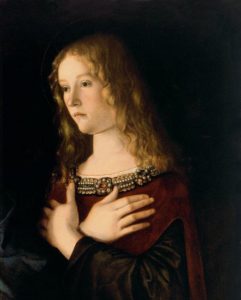

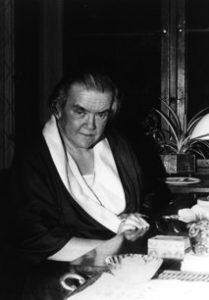
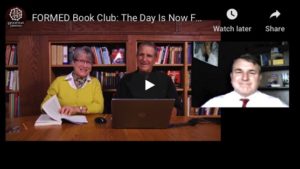 “Do not be afraid because of your small numbers. It not a matter of winning elections or influencing opinions…. Faith is like a fire. The person himself must be on fire in order to be able to transmit it. Watch over this sacred fire! May it be your heat in the depths of the winter of the West. When a fire illumines the night, people gradually gather around it. That must be your hope.”
“Do not be afraid because of your small numbers. It not a matter of winning elections or influencing opinions…. Faith is like a fire. The person himself must be on fire in order to be able to transmit it. Watch over this sacred fire! May it be your heat in the depths of the winter of the West. When a fire illumines the night, people gradually gather around it. That must be your hope.”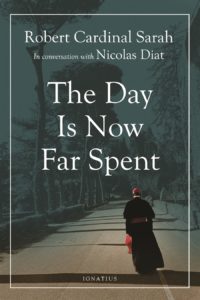



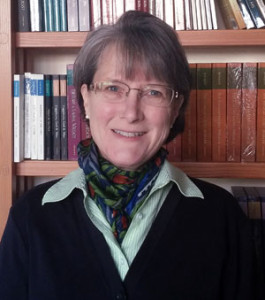
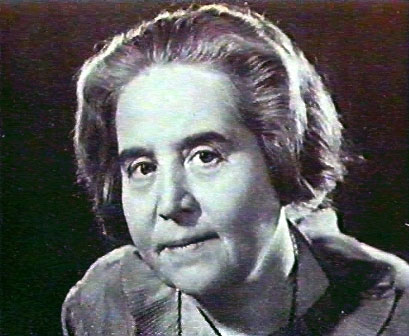

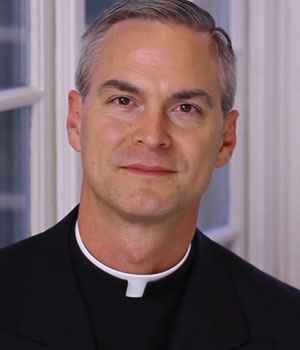 With Fr. John Bartunek, we continue with part 2 of our discussion on “The Better Part: The Gospels.” During our conversation, we discuss the importance of prayer and the scriptures, the nature of spiritual direction, and how we can develop our friendship with Christ. It’s always a joy to talk with Fr. Bartunek. We couldn’t recommend this 4-volume set more highly.
With Fr. John Bartunek, we continue with part 2 of our discussion on “The Better Part: The Gospels.” During our conversation, we discuss the importance of prayer and the scriptures, the nature of spiritual direction, and how we can develop our friendship with Christ. It’s always a joy to talk with Fr. Bartunek. We couldn’t recommend this 4-volume set more highly.
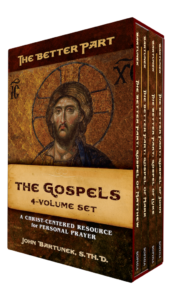
 The wisdom that comes from experience is a gift that is meant to be shared, especially in times of challenge and heightened anxiety. In “The Twelve Steps and the Sacraments: A Catholic Journey of Recovery,” Scott Weeman shares his recovery journey and offers a hand up to many today who find themselves in a time of darkness and struggle, especially during the circumstances arising from the Covid-19 global pandemic.
The wisdom that comes from experience is a gift that is meant to be shared, especially in times of challenge and heightened anxiety. In “The Twelve Steps and the Sacraments: A Catholic Journey of Recovery,” Scott Weeman shares his recovery journey and offers a hand up to many today who find themselves in a time of darkness and struggle, especially during the circumstances arising from the Covid-19 global pandemic.
